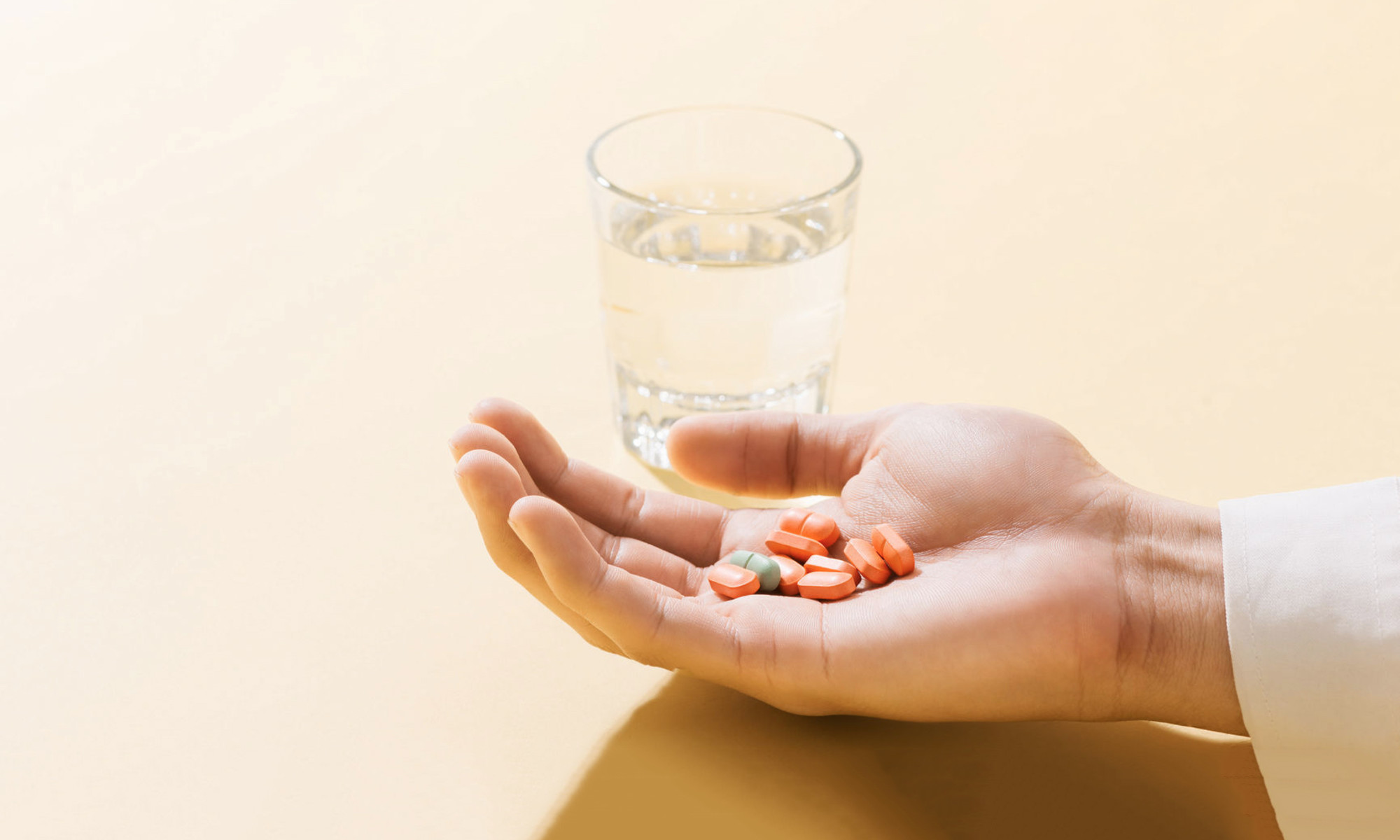Your Grandma's Go-To Supplement Is Once Again Popular (For A Good Reason)
It's not sexy, but it works.

Advertisement
This ad is displayed using third party content and we do not control its accessibility features.

Registered Dietitian Nutritionist
Registered Dietitian Nutritionist
Molly Knudsen, M.S., RDN is a Registered Dietician Nutritionist with a bachelor’s degree in nutrition from Texas Christian University and a master’s in nutrition interventions, communication, and behavior change from Tufts University. She lives in Newport Beach, California, and enjoys connecting people to the food they eat and how it influences health and wellbeing.
Image by Rowena Naylor / Stocksy November 17, 2024 A lot of us are now just realizing that our grandmas were right about a lot of things. Knitting is fun. Baking bread brings joy. Tea before bed is a must. Fiber supplements are good for you. And fiber has made some major headlines lately. A beverage of blended oats, water, and lime juice coined oatzempic is being hailed as a weight loss magic bullet, and psyllium husk garnered similar fanfare a few months prior. These claims are, of course, exaggerated. But fiber does help with weight management, blood sugar control, gut health, and, of course, the coveted digestive regularity—and most of us aren't getting enough of it.* While not the sexiest supplement, fiber powders sure are practical and offer a host of benefits.
What are fiber supplements?
Fiber is a unique complex carb that is not digested by the human body and passes through the digestive tract relatively unscathed. It's only found in plant foods like grains, fruits, and vegetables.
Supplements isolate certain fibers from plants—although some fiber supplements are synthetically derived—into a powder, capsule, tablet, or gummy.
Why take a fiber supplement?
Even if you eat a lot of plants, you may be falling short of the fiber you need for optimal health. The average U.S. adult only eats about 16 grams1 a day, while women often need a minimum of 21-28 grams and men need 30-38 grams.
While eating more fiber-rich foods—like lentils, legumes, avocados, and chia seeds—should be a priority, choosing a high-quality fiber supplement can easily sneak in an extra six or so grams a day.
Another reason is if you're looking to address a specific health goal. Want to enrich your gut bacteria? Choose a prebiotic fiber. Want to focus on cholesterol and blood sugar? Choose a research-backed soluble fiber2. What about better regularity? Choose one that helps speed up gut transit time.*
Supplements can help provide targeted support for gut (and whole-body) health.*
Popular fibers for supplements
These are some of the common research-backed fibers that you may see on Supplement Facts panels:
While many of these fibers are listed as primarily soluble gel-forming fibers, they do still provide you with some insoluble fiber—as most plants naturally contain a mixture of both.
Not your grandma's fiber supplement
Your grandma didn't have many choices when it came to fiber supplements. She likely had a bright orange canister of Metamucil® tucked in a cabinet or sitting on the counter. And many people still reach for this dated formula.
"These bestselling fiber powders in the market are not clean," says mindbodygreen's vice president of scientific affairs Ashley Jordan Ferira, Ph.D., RDN. "They contain artificial flavors, synthetic dyes, artificial sweeteners like aspartame, and other additives—things known to mess with your gut in a bad way. Talk about counterproductive!"
Ferira also emphasizes that "these lazy formulas" also rarely contain multiple fiber sources, much less other gut-supporting ingredients like probiotics.
Meet organic fiber+ with prebiotic support
There are much better options on the market today including mindbodygreen's organic fiber+ with prebiotic support. This innovative formula was thoughtfully formulated to provide 6 grams of fiber with zero additives and zero other ingredients. "That's unheard of," emphasizes Ferira.
Most of that fiber comes from organic guar beans. Studies show that soluble, prebiotic fiber has the following benefits:
We also paired it with organic green kiwifruit (for additional fiber and digestive support10) and an organic mushroom blend (that provides beta-glucans11 for even more prebiotics).*
The supplement is rounded out with probiotic support from Bacillus subtilis ATCC12264 to further address bloating and gas12.*
The powder also disperses readily into hot or cold liquids and does not gel (it also goes great in oatmeal or yogurt bowls). One of the biggest complaints with psyllium fiber powders is that many start gelling as they're stirred into water—creating a rather undesirable consistency for a beverage.* So while psyllium is still a very research-backed fiber, it's just not always the most pleasant to consume.
The takeaway
Fiber and fiber supplements deserve the increased attention they're getting (albeit some overpromising headlines). Whether you're looking for regularity or metabolic or general gut health support, fiber has your back.
But do things slightly differently than your grandma and opt for more innovative formulas with no additives, like organic fiber+ with prebiotic support.
If you are pregnant, breastfeeding, or taking medications, consult with your doctor before starting a supplement routine. It is always optimal to consult with a health care provider when considering what supplements are right for you.

 JaneWalter
JaneWalter 





























